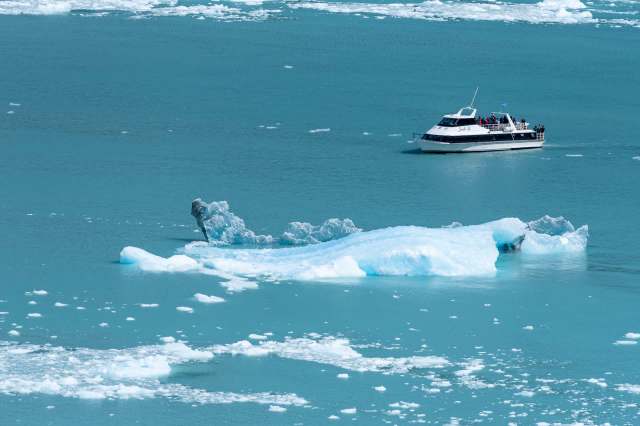Researchers Sound Alarm After Alarming Discovery About Arctic Ships: 'Critical Concerns'

New research indicates that black carbon pollution — the soot-like planet-warming material released through the incomplete burning of fossil fuels — has reached higher levels in the Arctic than previously expected as a result of shipping activity in the area.
What's happening?
While successful trading partnerships might bode well for the European Union and global markets, the number of ships in the Arctic is proving taxing for the environment. According to a late-May report from Euronews, previous studies have looked mostly at the emissions impacts from EU ships rather than also including impacts from other ships passing through the region, potentially skewing understanding of the industry's carbon footprint as effects continue to grow.
"Our findings show that ships connected to EU trade, regardless of their flag, are major drivers of black carbon pollution in the Arctic," Liudmila Osipova, an International Council on Clean Transportation senior researcher, told the outlet.
Euronews reported that estimates for the polar region point to a growth from less than 200 metric tons of black carbon in 2015 to over 400 in 2021 — over a 100% increase. Based on this trend, numbers are expected to rise further if pollution-heavy shipping activity persists.
Why is black carbon pollution concerning?
When it comes to black carbon, the major concern is its sheer potency in warming the planet. A single metric ton has the " global warming effect equivalent" to up to 900 metric tons of typical carbon dioxide, per Euronews.
Higher levels of black carbon emissions in the polar region contribute substantially to Arctic ice melt — a phenomenon that could release long-frozen infectious microbes, sparking unprecedented disease outbreaks.
Watch now: Giant snails invading New York City?
Rising sea levels brought about by melting Arctic ice are also set to jeopardize coastal communities and exacerbate extreme weather . Events like hurricanes are part of life on Earth, but heat-trapping gases are supercharging their effects , with higher seas meaning storm surges can be more destructive and reach further inland than before.
What can be done about black carbon?
Accurately understanding a problem is generally the first step in addressing it. According to Euronews, prior black carbon estimates for the Arctic region have been projected well below the actual level, possibly misleading many to believe the issue hasn't been as serious as it actually is.
Properly tracking emissions from all cargo ships — and funding research and development for more carbon-neutral ship technology — could be among the most beneficial steps forward. But municipalities and individuals will likely need to take further action in the short term.
As ice sheets continue to melt, the resilience of homes to extreme weather can be improved with clean-energy upgrades, such as the installation of solar panels in conjunction with a battery system to maintain essential household power during grid outages. Clean-energy alternatives are becoming more widespread in communities too , and some municipal projects to protect coastal residents are moving forward even without full support at the national level .
Other such initiatives around the world may require more prioritization and sustained investment to make a real difference. Learning about how to organize support for pro-environment policies could be a part of coordinating global efforts to mitigate the effects of international issues like shipping and supply chain impacts on human-caused climate change.
|
Do you worry about air pollution in your town? All the time Often Only sometimes Never Click your choice to see results and speak your mind. |

Join our free newsletter for good news and useful tips , and don't miss this cool list of easy ways to help yourself while helping the planet.
Researchers issue grim warning after making concerning discovery about ships in Arctic: 'Major drivers' first appeared on The Cool Down .
Post a Comment for "Researchers Sound Alarm After Alarming Discovery About Arctic Ships: 'Critical Concerns'"
Post a Comment